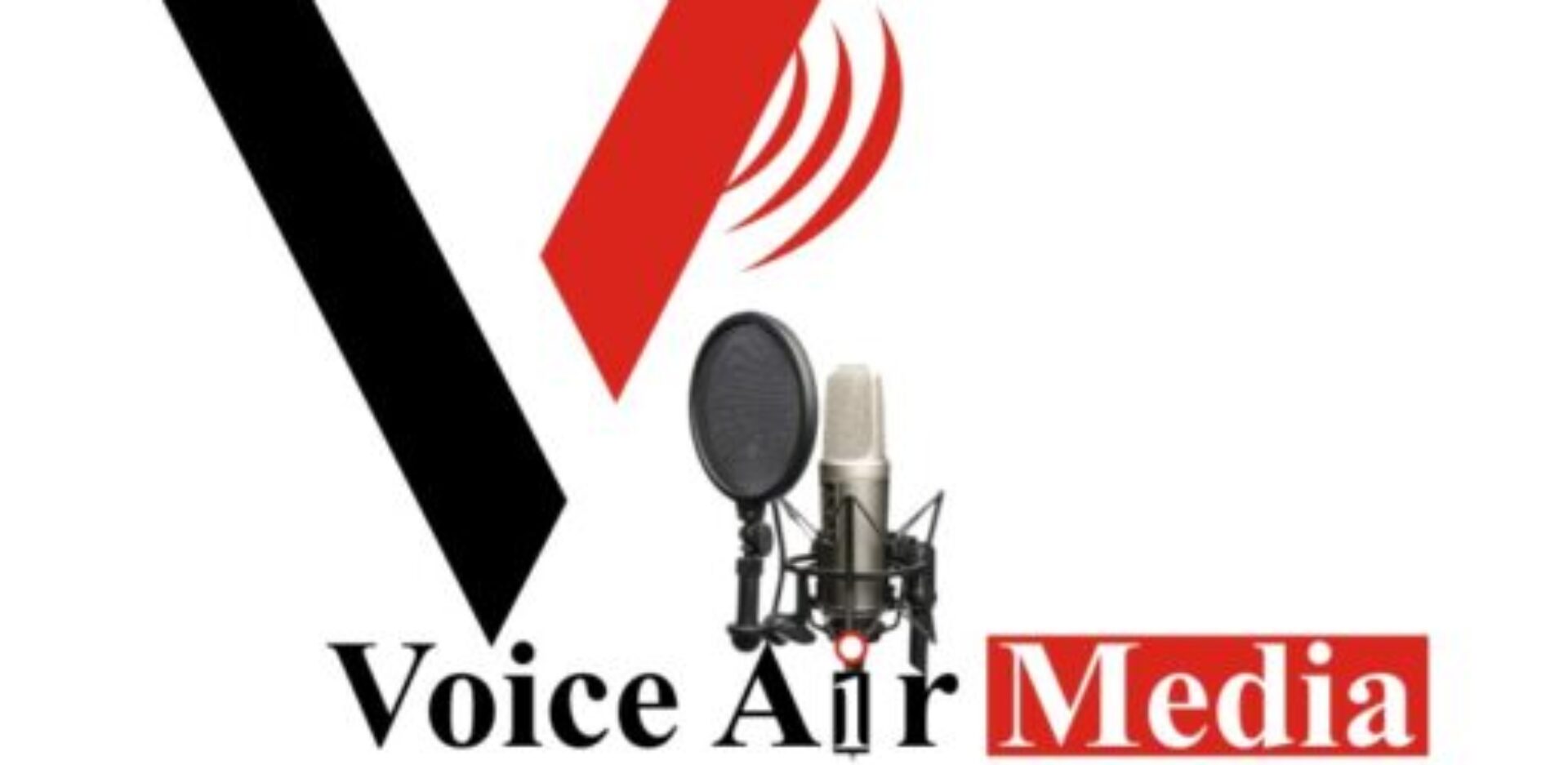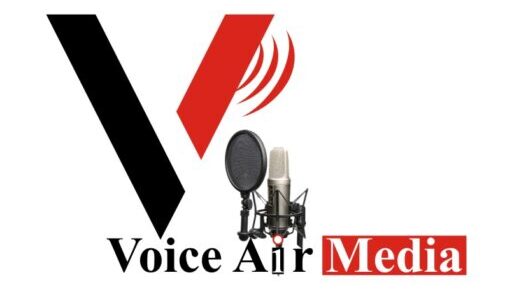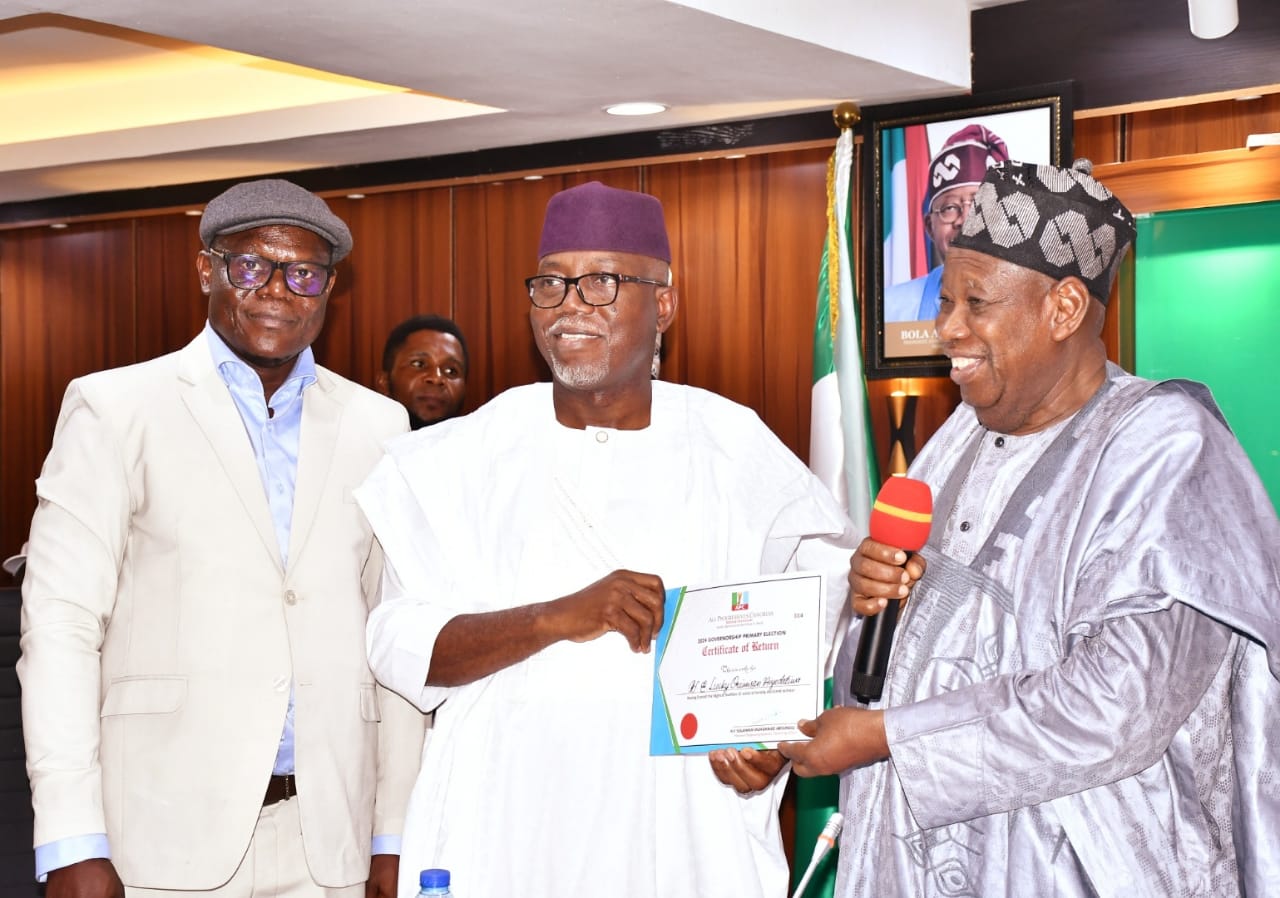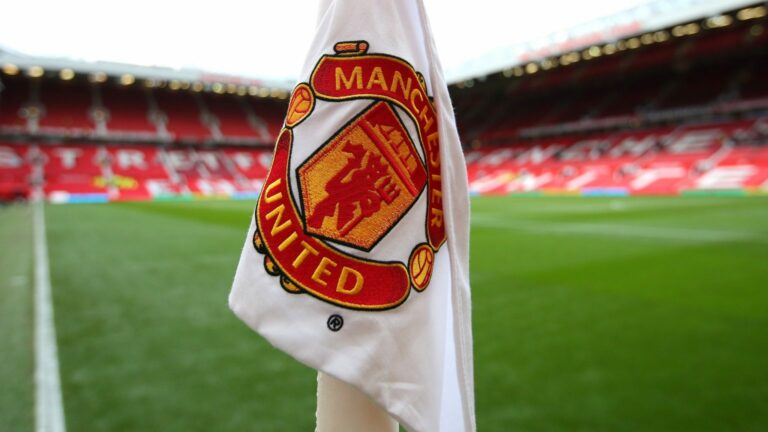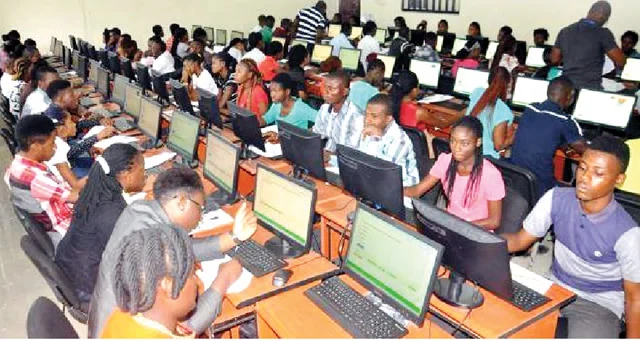- US restricts travel for diplomats in Israel amid fears of Iran attack
The United States has restricted travel for its embassy personnel in Israel amid fears of an attack by Iran.
The US embassy said staff had been told not to travel outside the greater Jerusalem, Tel Aviv or Beersheba areas “out of an abundance of caution”.
Iran has vowed to retaliate, blaming Israel for a strike on its consulate in Syria 11 days ago, killing 13 people.
UK Foreign Secretary Lord Cameron has phoned his Iranian counterpart to urge against further escalation.
Israel has not claimed responsibility for the consulate attack but is widely considered to have been behind it.
Iran backs Hamas, the armed Palestinian group fighting Israel in Gaza, as well as various proxy groups throughout the region, including some – such as Hezbollah in Lebanon – that frequently carry out strikes against the Israelis.
Those killed in the consulate attack included a senior commander of Iran’s elite Quds Force in Syria and Lebanon, as well as other military figures.
The attack came at a time of continuing diplomatic efforts to prevent the war in Gaza spreading across the region.
Speaking on Wednesday, US President Joe Biden warned Iran was threatening to launch a “significant attack” and vowed to offer “ironclad” support to Israel.
Israeli Prime Minister Benjamin Netanyahu said his government was ready to meet any security challenge, warning that Israel would harm any country that caused it harm.
“We are prepared to meet all of the security needs of the State of Israel, both defensively and offensively,” he said.
The commander responsible for US operations in the Middle East, Erik Kurilla, has travelled to Israel for talks with officials on security threats.
The Pentagon said the visit had been scheduled previously but had been brought forward “due to recent developments”.
Following a call with Iranian Foreign Minister Hossein Amir-Abdollahian, Lord Cameron said he had “made clear… that Iran must not draw the Middle East into a wider conflict”.
“I am deeply concerned about the potential for miscalculation leading to further violence,” he said.
US Secretary of State Antony Blinken has spoken to the foreign ministers of China, Saudi Arabia and Turkey to argue that further escalation is not in anyone’s interest.
Following the call, China urged the US to play “a constructive role” in the Middle East, while also condemning the strike widely believed to have been carried out by Israel on Iran’s consulate building in Damascus.
It is not clear what form any reprisal attack would take nor whether it would come directly from Iran or via one of its proxies.
On Sunday an Iranian official warned Israel’s embassies were “no longer safe”, suggesting a consulate building could be a possible target.
Israeli defence minister Yoav Gallant has told his US counterpart that “any direct Iranian attack” on Israeli territory would “require an appropriate Israeli response against Iran”.
Asked about the travel restrictions on Thursday, state department spokesperson Matthew Miller said he would not disclose the “specific assessments” behind them, but added: “Clearly we are monitoring the threat environment in the Middle East and specifically in Israel.”
The UK Foreign Office has also updated its travel advice for Israel to state that the country’s government has raised the “possibility of an attack on Israeli territory from Iran, and that such an attack could trigger wider escalation”.
Since the Hamas-led attack on Israel on 7 October, the Foreign Office has warned against travel to large parts of Israel and the Occupied Palestinian Territories.
France similarly warned its citizens to “imperatively refrain from travel in the coming days to Iran, Lebanon, Israel and the Palestinian territories”.
Family members of French diplomats in Iran are being evacuated.
German airline Lufthansa has extended a suspension of flights to the Iranian capital Tehran until Saturday.
The October attack saw gunmen kill 1,200 people and take more than 250 hostage after crossing into Israel from Gaza.
Israel says that of 130 hostages still in Gaza, at least 34 are dead.
More than 33,000 Gazans, the majority of them civilians, have been killed during Israel’s subsequent offensive in Gaza, the Hamas-run health ministry says.
- The $2bn dirty-money case that rocked Singapore
A Singaporean court has begun handing out sentences in a sensational case, which saw 10 Chinese nationals charged for laundering $2.2bn (£1.8bn) earned from criminal activities abroad.
The scandal embroiled multiple banks, property agents, precious metal traders and a top golf club. It led to extensive raids in some of the most affluent neighbourhoods, where police seized billions in cash and assets. The lurid details have gripped Singaporeans – among the seized assets were 152 properties, 62 vehicles, shelves of luxury bags and watches, hundreds of pieces of jewellery and thousands of bottles of alcohol.
Earlier this month, Su Wenqiang and Su Haijin, became the first to be jailed in the case. Su Haijin, police said, jumped off the second-floor balcony of a house trying to flee arrest. Both men will serve a little over a year in prison, after which they will be deported and barred from returning to Singapore. Eight others are still awaiting the court’s decision.
Even as it draws to a close, the case – the biggest of its kind in Singapore – has raised inevitable questions. The money that paid for their plush lives in the country, prosecutors said, came from illegal sources overseas, such as scams and online gambling.
How did these men, some of whom had multiple passports from Cambodia, Vanuatu, Cyprus and Dominica, live and bank in Singapore for years without drawing scrutiny? It has sparked a review of policies, with banks tightening rules, especially around clients who hold multiple passports.
Most important, the case has spotlighted the country’s struggle with welcoming the super wealthy, without also becoming a destination for ill-gotten gains.
Show me the money
Singapore, which is often referred to as the Switzerland of Asia, started wooing banks and wealth managers in the 1990s. Economic reforms in China and India had begun to pay off, and then in the 2000s, a newly-stable Indonesia saw wealth grow as well. Soon, Singapore became a haven for foreign businesses, with investor-friendly laws, tax exemptions and other incentives.
Today, the ultra-rich can fly into Singapore’s private jet terminal, live it up in luxurious quayside neighbourhoods, and speculate on the world’s first diamond trading exchange. Just outside the airport is a maximum-security vault called Le Freeport that provides tax-free storage for fine art, jewels, wine and other valuables. The $100m-facility is often dubbed Asia’s Fort Knox.
Singapore’s asset managers drew S$435bn from abroad in 2022, almost double the figure in 2017, according to the country’s market regulator. More than half of Asia’s family offices – firms which manage private wealth – are now in Singapore, according to a report by consulting giant KPMG and family office consultancy Agreus.
They include those of Google co-founder Sergey Brin, British billionaire James Dyson and Chinese-Singaporean Shu Ping, boss of the world’s biggest chain of hotpot restaurants, Haidilao.
Authorities say some of the accused in the money laundering case may be linked to family offices that were given tax incentives.
“There is an inherent contradiction for a place like Singapore, which prides itself on clean and good governance but also wants to accommodate the management of massive wealth by offering advantages such as low taxes and banking secrecy,” says Chong Ja-Ian, a non-resident scholar at Carnegie China.
“The risk of also becoming a banker for individuals who earned their money through nefarious or illicit means grows.”
For rich Chinese, Singapore is a top choice because of its reputed governance and stability, as well as its cultural links to China. And more Chinese money has been entering Singapore in recent years.
One of the 10 suspects in this case was wanted in China since 2017 for his alleged role in illegal gambling online. Prosecutors claimed that he settled in Singapore because he “wanted a safe place to hide from the Chinese authorities”.
This isn’t the first time Singapore-based banks have been implicated in a financial crime. They were found to have played a role in cross-border laundering in the 1MDB scandal, where billions were misappropriated from Malaysia’s state investment fund. Dan Tan, who was once described by Interpol as “the leader of the world’s most notorious match-fixing syndicate” also had strong business links to Singapore. He was arrested here in 2013.
The country has strict rules targeting white collar crimes and is an active member of the Financial Action Task Force, a global body which targets money laundering and financing for terror networks. Over the years, banks have invested heavily to strengthen compliance, to screen prospective customers and to urge regulators to report suspicious transactions. But none of this is foolproof.
For one, it is difficult for regulators to spot suspicious cases in a sea of high-value transactions.
“It’s not just one needle in a haystack, but one needle in several haystacks,” Singapore’s second minister for home affairs, Josephine Teo, told parliament in October last year.
Singapore’s buoyant property market is a popular means to “clean” dirty money, some experts pointed out. And there are the casinos, nightclubs and luxury stores.
“Massive amounts of money pass through Singapore’s banking system every day. Criminals can exploit this feature and disguise their money laundering activities among legitimate ones,” accounting professor Kelvin Law from Singapore’s Nanyang Technological University told the Newsmen.
Singapore also does not limit the amount of cash that can be carried in and out of the country, only requiring a declaration if the sum exceeds S$20,000. And that is an advantage, says Christopher Leahy, the founder of Singapore-based investigative research and risk advisory firm Blackpeak.
“If you want to move lots of money, you hide it in plain sight and Singapore is a great place for that. There is no point putting it in the Cayman Islands or the British Virgin Islands, where there is nothing [to spend money on],” he said.
When asked for a response to analysts’ comments that Singapore’s advantages as a financial capital are also a draw for dirty money, authorities pointed the BBC to the law and home affairs minister interview in a local newspaper last year.
“We can’t close the window, because if we did that, then legitimate funds will also not be able to come. And legitimate business also can’t be done, or becomes very difficult to do. So we have to be sensible,” K Shanmugam said.
“When you are successful, you are a major financial centre, a lot of money comes in, some ‘flies’ will also come in,” he added, referring to an oft-repeated quote of the late Chinese leader, Deng Xiaoping.
Singapore has to decide how far it will go in accepting “money with varying shades of grey”, says Dr Chong of Carnegie China.
While increased regulation will help, he says transparency poses a bigger challenge: “Transparency goes against the very model of discretion that allows many wealth management hubs to thrive.”
Some analysts say this may well be the price Singapore is willing to pay to retain its position as a financial hub.
“The vast majority of the funds are legitimate, after all,” Mr Leahy says. “But there is an inevitable cost to being a major financial centre.”
- First European citizen jailed under HK security law
A Portuguese man has become the first European citizen jailed under the China-imposed National Security Law in Hong Kong, a law widely criticised by rights groups.
Joseph John, also known as Wong Kin-chung, holds a Portuguese passport and Hong Kong residency and was previously based in the UK.
He was arrested for posting pro-independence and anti-China content on social media, after returning to Hong Kong to visit family in 2022.
In February, he was convicted of “secession” and on Thursday sentenced to five years in jail.
Under the law, secession is the offence of advocating for Hong Kong to break away from China.
John, 41, had previously been the head of a little-known group calling itself the Hong Kong Independence Party, where he operated the group’s Facebook and other social media accounts as well as a UK-registered website.
The group advocated for foreign intervention in China’s rule over Hong Kong following the 2019 pro-democracy protests.
In the wake of Beijing’s crackdown on protest, the group called for the “UK and US to send troops to Hong Kong” with online posts about petitions for foreign intervention and crowdfunding for an independent Hong Kong army.
The pages were shut down in 2022, when John returned to Hong Kong to visit his ailing mother and was arrested by authorities.
He pleaded guilty to “inciting secession” in February.
In his sentencing trial on Thursday, Judge Ernest Lin said John had “distorted history, demonised China, and appealed to foreign countries to destroy [Hong Kong] and China by political or simply violent means”.
He was sentenced to five years – the mandatory minimum now given to “serious” National Security Law cases. This has become the new legal standard set in the territory in recent years.
John had already been held in custody for 16 months – having been denied bail as a defendant charged under the National Security Law. It is now standard practice in Hong Kong for bail rights to be denied to those charged under the law, legal experts say.
Portuguese consular officials as well as representatives from the European Union were in the Hong Kong District Court on Thursday.
Portuguese officials said during John’s detention, they had been denied access to him.
It’s been reported that Hong Kongers with dual nationality have not been able to receive foreign consular assistance as the city’s officials have been enforcing Chinese nationality rules. Beijing does not allow dual citizenship.
John is believed to be the first dual national and first foreign citizen jailed under the Beijing’s National Security Law, which was imposed in response to the massive street protests that rocked Hong Kong in 2019 where demonstrators protested China’s increased rule and called for greater democratic rights.
Since it was enacted in 2020, more than 290 people have been arrested under the law, with 174 people charged with national security crimes and 112 convicted.
It criminalises anything considered as secession; subversion, which is undermining the power or authority of the central government; terrorism, which is using violence or intimidation against people; and collusion with foreign or external forces.
China and Hong Kong authorities say the law is necessary to maintain stability in the city, and have rejected arguments it weakened Hong Kong’s autonomy.
Rights groups and critics of the law say it crushed the political opposition and silenced any dissent in the city.
Last month, Hong Kong also introduced another security law expanding authorities’ reach. The new law, known as Article 23, targets new offences like external interference and insurrection. Critics have warned that it further erodes Hong Kongers’ civil liberties.
- Biden urged to ban China-made electric vehicles
President Joe Biden has been urged to ban imports of Chinese-made electric cars to the US.
The chair of the Senate Banking Committee, Senator Sherrod Brown, wrote “Chinese electric vehicles are an existential threat to the American auto industry”.
His comments are the strongest yet by any US lawmaker on the issue, while others have called for steep tariffs to keep Chinese electric vehicles (EV) out of the country.
In February, the White House said the US was opening an investigation into whether Chinese cars pose a national security risk.
“We cannot allow China to bring its government-backed cheating to the American auto industry”, Senator Brown said in a video on the social media platform X, formerly Twitter.
Senator Brown, who is a Democrat from the the car-producing state of Ohio, is seeking to win a fourth term in office in November’s election.
The White House did not immediately respond to a BBC request for comment.
In February, President Biden said that China’s policies “could flood our market with its vehicles, posing risks to our national security” and that he would “not let that happen on my watch.”
Washington could impose restrictions over concerns that the technology in Chinese-made cars could “collect large amounts of sensitive data on their drivers and passengers”, the White House said.
It warned cars that are connected to the internet “regularly use their cameras and sensors to record detailed information on US infrastructure; interact directly with critical infrastructure; and can be piloted or disabled remotely”.
China is the world’s largest producer of cars and vying with Japan to be the biggest exporter of vehicles.
The number of Chinese cars on US roads is, however, extremely low due to the fact the latter currently imposes a 27.5% tariff on the vehicles.
This week, while on a trip to China, US Treasury Secretary Janet Yellen warned Beijing that Washington would not allow a repeat of the “China shock” of the early 2000s, when Chinese imports flooded into America.
In response, China’s vice finance minister, Liao Min, expressed “grave concern” over restrictions the US has imposed on trade and investment.
Mr Liao said China’s competitive advantages are due to its “large-scale market, complete industrial system and abundant human resources”.
Also on Thursday, America’s biggest airlines asked the Biden administration to halt approvals of new flights between the US and China.
In a letter to Secretary of State Antony Blinken and Transportation Department Secretary Pete Buttigieg they said China’s “damaging anti-competitive policies” put US carriers at a disadvantage.
“If the growth of the Chinese aviation market is allowed to continue unchecked and without concern for equality of access in the market, flights will continue to be relinquished to Chinese carriers at the expense of US workers and businesses.”
The world’s two biggest economies have been locked in a trade war since 2018 when the then-Trump administration imposed tariffs on more than $360bn (£287bn) of Chinese goods.
Beijing retaliated with tariffs on more than $110bn of US products.
President Joe Biden has largely kept those tariffs in place.
Last year the value of goods the US bought from China fell by just over 20% to $427bn. At the same time, US exports to China dipped by 4% to just under $148bn.
- U.S. Sends a Top General to Israel Amid Fears of Iranian Strikes
The visit of Gen. Michael E. Kurilla, the U.S. military commander in the Middle East, came as diplomats sought to avert a wider war.
The United States dispatched its top military commander for the Middle East to Israel on Thursday, after President Biden stated that, despite recent friction, American support for Israel “is ironclad” in the event of an attack by Iran.
Iran’s leaders have repeatedly vowed to punish Israel for an April 1 strike in Syria that killed several senior Iranian commanders. Israel has put its military on alert, and Mr. Biden said on Wednesday that Iran was threatening a “significant” attack.
Gen. Michael E. Kurilla, the American commander, will coordinate with Israel on what is widely expected to be imminent retaliatory action by Iran and will also discuss the war against Hamas in Gaza and humanitarian aid operations there, according to officials who spoke on the condition of anonymity because of the sensitivity of the matter.
Prime Minister Benjamin Netanyahu of Israel acknowledged on Thursday that Israel was facing “challenging times,” noting that “in the midst of the war in Gaza” his country was “also prepared for scenarios involving challenges in other sectors.”
“We have determined a simple rule: Whoever harms us, we will harm them,” he said while visiting an air base, using language that has been used in recent days to refer to threats from Iran and its proxies, including Hamas.
- Germany faces domestic lawsuit over its arms sales to Israel
Germany will face a fresh call to revoke all arms sales to Israel on Thursday in a lawsuit that puts more pressure on Berlin amid a rising outcry about the scale of deaths and destruction in the war on Gaza.
A lawsuit in the German domestic courts will ask judges to urgently direct the government to revoke all arms licences to Israel issued since 7 October, when Hamas launched its attack on Israel.
Germany is widely seen as the second largest arms exporter to Israel behind the US, and is certainly a more significant provider of arms than the UK.
The lawsuit has been issued by four human rights groups on behalf of five named Palestinians who say they are in fear of their lives in Gaza, and are suffering a form of collective punishment by Israel.
The legal action is directed against the Green party-led federal ministry for economic affairs and climate action, the department responsible for export licences under the weapons of war control act.
“It is reasonable to believe that the German government is in violation of the arms trade treaty, the Geneva conventions and its obligations under the genocide convention – agreements that have been ratified by Germany,” said a statement from one of the lead litigants, the European Center for Constitutional and Human Rights (ECCHR).
The lawsuit, likely to be handled through written proceedings, would have the most practical impact on the German sale of 3,000 anti-tank weapons.
The five Palestinians include those who have lost relatives in the war, as well as their homes and jobs and are considered internally displaced persons, states the lawsuit.
“All five of my children were killed when Israel fired on the refugee camp where we were staying after fleeing from the north,” one of the plaintiffs said. “Germany must stop sending weapons that fuel this war. No other mother should suffer such a terrible loss.”
The ECCHR general secretary, Wolfgang Kaleck, said that international law and human rights were “fundamental” . “A basic prerequisite for a rules-based and human rights-oriented German foreign policy is respect for the law in its own decision making. Germany cannot remain true to its values if it exports weapons to a war where serious violations of international humanitarian law are apparent.”
The Green foreign minister, Annalena Baerbock, has become increasingly critical of Israel, describing Gaza as a hell, but for historical reasons Germany says preservation of Israel’s security is at the heart of its foreign policy.
The case is separate from that brought by Nicaragua, which this week pleaded in front of the international court of justice in The Hague that Germany was in defiance of the Geneva conventions by continuing to supply arms to Israel.
The German government told the court that it had received Israeli assurances that it had taken precautions and it currently had no reason to doubt this.
While Germany exported defence equipment worth €203m (£174m) to Israel in October 2023, the volume in March amounted to only €1m, the government lawyers said.
At the same time, the Global Legal Action Network has now been given a date of 23 April for an oral hearing for its request for judicial review of the UK statement that arms exports can continue on the basis of legal advice that Israel is not acting unlawfully.
It is expected UK ministers will set out further next week in parliament how the legal advice shows Israel is not in breach of international humanitarian law, a judgment that has been the subject of intenseargument. The government has refused to publish the legal advice or a summary of it, but ministers are expected to explain the policy position.
- Abu Dhabi state oil company reportedly looked at buying BP
Abu Dhabi’s state-owned oil company reportedly recently explored a multibillion-pound bid for BP, in a sign that depressed share values in London are making even the biggest British businesses takeover targets.
Abu Dhabi National Oil Company (Adnoc) considered options including purchasing BP or acquiring a large stake before deciding it was not the right fit and abandoning preliminary discussions, according to Reuters.
Adnoc and BP spoke directly in recent months and the UAE firm also sought advice from investment banks on a potential deal, although discussions did not progress far, the report added.
Shares in BP rose by more than 2% in early trading to 530.5p, valuing the company at £89.4bn.
The reported takeover talks have come to light just months after BP’s chief executive, Murray Auchincloss, was forced to downplay speculation that the oil company could become a target after reporting weaker than expected quarterly profits last October.
The future of BP was cast in doubt following a wave of mega-mergers in the US oil industry and after the shock exit of the company’s chief executive, Bernard Looney, in early September.
At the time Auchincloss told the Guardian he was not concerned about the takeover speculation because BP was trading at multiples to earnings that were similar to the European oil companies Shell and Total. He said BP had also started to close the valuation gap between the company and its US competitors.
BP has underperformed against its competitors in recent years, which investors and analysts have blamed on the company’s high-profile green pledges including a commitment to produce 40% less oil and gas by the end of the decade. The company watered down the target last year to a 25% reduction after revealing bumper oil and gas profits following the war in Ukraine.
BP and Adnoc already have a number of joint ventures, including a link-up to develop gas assets in Egypt announced in February and a separate partnership last year to acquire a 50% stake in the Israeli natural gas group NewMed, although this investment is on hold.
BP’s ties to the UAE predate the founding of Adnoc more than 50 years ago. The company was part of a consortium of western oil majors that spearheaded the exploration of oil and gas across the Middle East and helped to discover oil in the emirate in 1958. In recent years BP has acquired shareholdings of 10% in Adnoc’s onshore, liquified natural gas and gas shipping subsidiaries.
Adnoc and BP declined to comment.
UK companies have recently attracted takeover interest because of relatively lower share values in London’s stock market, which have prompted companies including CRH and Flutter to move their listings to New York.
Shell’s chief executive, Wael Sawan, and its former boss Ben van Beurden have recently made comments suggesting the oil company may choose to list on the New York Stock Exchange because US investors are “more positive” about fossil fuels.
BP confirmed Auchincloss as chief executive earlier this year, succeeding Looney, who resigned last year for failing to disclose past relationships with colleagues. The company has committed to a huge share buyback programme and has said it wants to purchase $3.5bn (£2.8bn) of its shares in the first half of 2024 and at least $14bn in stock in 2024 and 2025.
Reuters said that political considerations had also surfaced as a factor in Adnoc’s decision not to proceed with a takeover. The UK government has the power to intervene in acquisitions in industries including energy under the National Security and Investment Act, which came into force in 2022.
The government also recently introduced legislation to prevent UK newspapers being bought by foreign state-owned companies after Redbird IMI, a partnership backed by Sheikh Mansour bin Zayed al-Nahyan, the UAE’s vice-president, and the US investment firm RedBird Capital Partners, tried to buy the Daily Telegraph newspaper. However this legislation is intended just to apply to newspaper groups.
- Mali’s junta bans the media from reporting on political activities in a deepening crackdown
In a deepening crackdown, Mali’s ruling junta on Thursday banned the media from reporting on activities of political parties and associations, a day after suspending all political activities in the country until further notice.
The order, issued by Mali’s high authority for communication, was distributed on social media. The notice said it applied to all forms of the media, including television, radio, online and print newspapers.
Mali has experienced two coups since 2020, leading a wave of political instability that has swept across West and Central Africa in recent years. Along with its political troubles, the country is also in the grip of a worsening insurgency by militants linked to al-Qaida and the Islamic State group.
The scope of the ban — or how it would be applied in practice — was not immediately clear. It was also not known if journalists would still be allowed to report on issues such as the economy, which are closely tied to politics and who would monitor their work.
The umbrella organization that represents journalists in Mali responded with an unusually stern rebuttal.
The group, known as Maison de le Press, or Press House, said it rejects the order and called on journalists to continue to report on politics in Mali. It also urged them to “stand tall, remain unified and to mobilize to defend the right of citizens to have access to information.”
Mali’s national commission for human rights also expressed regret and profound concern over the decision in a statement published late Thursday. It warned the junta the decision could prove harmful.
“Instead of calming the social climate, these restrictions on fundamental rights and freedoms could potentially stir up trouble and tension, which the country does not need,” it said.
The clampdown on the media followed a similar action on Wednesday, when the junta ordered the suspension of all activities by political parties until further notice, citing a a need to preserve public order. The news was broadcast on state television as the population was celebrating Eid al-Fitr, the holiday marking the end of the holy month of Ramadan during which observant Muslims fast from dawn till dusk.
Analysts said the move was likely a backlash against political figures, civil society and students who have expressed frustration with the junta’s failure to return the country to democratic rule as promised.
“Recent weeks saw mounting pressure by political parties and figures,” Rida Lyammouri of the Policy Center for the New South, a Morocco-based think tank, told The Associated Press. “For the first time, the public and politicians have publicly criticized junta leaders and accused them of a lack of seriousness.”
Col. Assimi Goita, who took charge after a second coup in 2021, promised to return the country to democracy in early 2024. But in September, the junta canceled elections scheduled for February 2024 indefinitely, citing the need for further technical preparations.
The junta has vowed to end the insurgency that emerged in 2012 after deposing the elected government. It cut military ties with France amid growing frustration with the lack of progress after a decade of assistance, and turned to Russian contractors, mercenaries from the Wagner group, for security support instead. But analysts say the violence has only grown worse.
The United States said it was “deeply concerned” by the ban on political activities. “Freedom of expression and freedom of association are critical to an open society,” State Department spokesman Matthew Miller told reporters in Washington.
- Russia sends air defence system, soldiers to Niger
Russia has sent an air defence system and 100 military trainers to Niger Republic in West Africa.
Military personnel from the Russian Ministry of Defence are to install the system and train Niger’s soldiers in its use, the Nigerien state broadcaster RTN reported late on Thursday.
This was preceded by a telephone conversation between the head of the military junta, Abdourahamane Tchiani, and Russian President Vladimir Putin at the end of March.
Until the military coup last July, Niger was the last democratic ally of the U.S., France and other European countries in the fight against Islamist militias in the Sahel region, where jihadists are continuing to gain influence.
In March, the junta ended its military cooperation with the U.S. in the fight against terrorism.
The German Armed Forces operate an air base in Niamey, the future of which is still unclear.
State television showed images of a Russian Ilyushin-76 aircraft that had landed at Niamey airport on Wednesday.
“We are here to train the Niger army using the military equipment that has arrived here,” a masked, fair-skinned man in military uniform said in heavily accented French in the broadcast.
Since the military seized power on July 26, Niger has embarked on a new path leading to the diversification of its partners in order to assert its sovereignty vis-à-vis the world, the report continued.
Putin and Tchiani had discussed “strengthening cross-sectoral and comprehensive strategic cooperation between Niger and Russia to deal with current threats, especially in the security field.”
Like its neighbours Mali and Burkina Faso before it, Niger is turning away from its Western partners, in particular ex-colonial power France, and towards Russia.
All three countries have been ruled by the military following coups.
- Trump’s hush money trial begins Monday—Here’s what to expect
Donald Trump will become the first former president to stand trial in a criminal case next week — and he’ll do so against the backdrop of a presidential campaign in which he’s the presumptive Republican nominee.
Jury selection begins Monday in New York City, and the trial is expected to last six to eight weeks.
Here’s a look at what you need to know and what’s expected to happen.
How long is jury selection expected to last?
Jury selection is expected to last one to two weeks. Starting Monday, prosecutors and lawyers for Trump will seek to whittle a pool of potentially hundreds of people to 12 jurors and six alternates. Each juror will answer 42 questions designed to discern whether they can be impartial about the polarizing former president. Questions include inquiries about what news sources they follow and whether they’ve ever attended any Trump rallies or protests. The jurors will be anonymous, meaning their identities will be withheld from the public because of security concerns.
A criminal trial involving Trump’s company before the same judge in 2022 took a week to select 12 jurors and five alternates.
What is Trump charged with?
Manhattan District Attorney Alvin Bragg charged Trump with 34 counts of first-degree falsifying business records, a low-level felony. Trump faces a maximum of four years behind bars if he’s convicted.
What is the prosecution alleging?
Prosecutors allege Trump “repeatedly and fraudulently falsified New York business records to conceal criminal conduct that hid damaging information from the voting public during the 2016 presidential election.”
At the heart of the case are allegations of various sex scandals that prosecutors say Trump tried to suppress with the help of his lawyer Michael Cohen and top executives in charge of the National Enquirer. In the final days of the election, Cohen paid $130,000 to one of the women, adult film star Stormy Daniels, to keep silent about her claim she’d had a sexual encounter with Trump in 2006. Trump has denied the allegation.
After he was elected, Trump reimbursed Cohen through a series of checks from his trust that were processed through the Trump Organization and labeled as payments “for legal services rendered” — a claim the DA says was false.
What is Trump’s defense?
Trump has maintained he didn’t do anything wrong, and while he has acknowledged reimbursing Cohen, he has said he didn’t know details about what Cohen was doing.
His lawyers are likely to target Cohen on the witness stand by painting him as a liar who loathes the former president and whose testimony shouldn’t be believed. They’re likely to be aggressive with Daniels, as well, and they’re expected to focus on comments she has made mocking Trump in an effort to portray her as biased and untrustworthy.
Who will testify for the prosecution?
Cohen, who says Trump directed him to make the payment to Daniels, is expected to be a key witness, as is Daniels. Trump’s attorneys sought to bar both from testifying, but Judge Juan Merchan gave both the green light to take the stand. Daniels’ former attorney Keith Davidson is likely to testify about his negotiations over the payment, a source with direct knowledge of the situation said.
Also expected to testify is Karen McDougal, a former Playboy model who said she had an affair with Trump, a claim he denies. She received money from the Enquirer to keep quiet about her allegations in what prosecutors said was part of a “catch and kill” scheme designed to keep a lid on potential Trump scandals.
David Pecker, a Trump ally who was the CEO of Enquirer publisher AMI at the time, is also expected to be called, the source said. Dylan Howard, another former AMI executive involved in the discussions with Trump and Cohen, may also testify.
Former White House communications director Hope Hicks — who prosecutors have said was involved in phone calls among Trump, Cohen and AMI — and former Trump assistant Madeleine Westerhout are also likely to take the stand, the source said.
Jurors are also expected to hear from Jeffrey McConney, the former controller for the Trump Organization, and Deborah Tarasoff, a former accounts payable supervisor at the company, the source said.
Who will testify in Trump’s defense?
Court filings show Trump plans to call Bradley A. Smith, a former Federal Election Committee chair who will testify about the FEC and its function, laws it’s responsible for enforcing and definitions and terms that relate to the case. The judge ruled he won’t be allowed to offer his opinion about whether Trump’s actions violated election law, as Trump had hoped he would.
There is a possibility Trump will testify because he’s the only person who can directly rebut some of Cohen’s claims.
Will Trump have to be in court every day?
Unlike the New York civil fraud and E. Jean Carroll defamation trials, the DA’s case is criminal, so Trump is required to be in court every day to participate in his defense. The trial is off on Wednesdays, but Trump will have to be in court for the four other days of the court week. The trial days are expected to last from 9:30 a.m. to 4:30 p.m.
Trump has suggested he might do campaign events at night after having attended court during the day.
How many jurors’ votes are needed for a conviction or an acquittal?
To reach a verdict, all 12 jurors must agree on whether Trump is guilty or not guilty of a specific charge.
